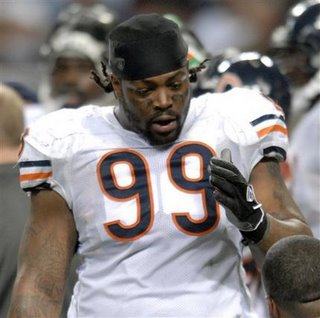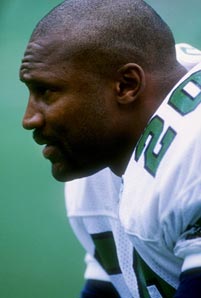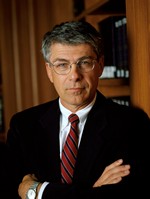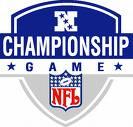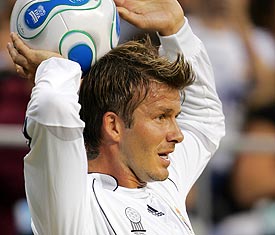Whatever barriers existed between African American head coaches and the Super Bowl prior to this season, Dungy and Smith have shattered them in their exemplary displays of leadership, fortitude and dedication. Appropriately, one of the principal stories leading up to this Super Bowl has been the fact that for the first time in the forty one years of Super Bowl play, one of the participating teams will be coached by an African American. The magnitude of this event can not be overstated.
As Dungy has repeatedly asserted when commenting on this historical achievement, both coaches brought their teams to the brink of a championship by coaching the “right way.” For Dungy and Smith, that includes fostering a familial bond of respect with the players’ in their charge and by refusing to engage in the “profanity” and “win or die” attitude displayed by many NFL head coaches. On Sunday evening, around 10:30 or 11:00 p.m. eastern time, an African American head coach will lift the Lombardi Trophy over his head triumphantly and will make history again as the first black head coach to win the title.
Perhaps lost amongst the deserved hoopla for Dungy and Smith was the relatively quiet hiring of Mike Tomlin by the Pittsburgh Steelers as their new head coach. Tomlin, the thirty four year old African American former defensive coordinator of the Minnesota Vikings becomes the first black head coach in the Pittsburgh Steelers seventy four year history. Tomlin becomes the sixth black head coach in the 2007 NFL joining Smith, Dungy, Herman Edwards of the Kansas City Chiefs, Romeo Crennel of the Cleveland Browns and Marvin Lewis of the Cincinnati Bengals. Last season seven African American head coaches stalked NFL sidelines, but the Oakland Raiders terminated Art Shell as head coach after one season and the Arizona Cardinals fired Dennis Green following three disappointing seasons.
Tomlin’s hiring is striking and noteworthy for several reasons. First, the NFL adopted a rule in 2002 under the direction of then commissioner Paul Tagliabue that required each NFL club to interview at least one minority candidate each time a head coaching vacancy became available. This rule is commonly referred to as the “Rooney Rule.” The owner of the Pittsburgh Steelers is Dan Rooney, one of the most influential owners in professional sports and it is he who masterminded the rule as a means of opening access and opportunity to African American coaches. Failure to follow the rule can result in a stiff penalty (as Matt Millen and the Detroit Lions can attest after being fined $200,000 for hiring Steve Mariucci without interviewing a single minority candidate in 2003).
In interviewing Tomlin, Rooney was following the very rule that he helped to establish. The obvious purpose of this rule was to begin to introduce the young minority coaches in the league to the primarily older, white male owners of the NFL clubs. As in any “old boy network” scenario, individuals will hire who they know, and by in large, the older white male NFL owners knew the same cadre of coaches and contacts who for so many years were primarily, if not absolutely, white. The Rooney Rule has forced NFL owners to develop lists of promising minority coaches and to have them in for day-long interviews allowing the owners to become familiar with a group of candidates they had not known previously—a type of affirmative action for NFL hiring.
When long-time Steelers coach, and beloved Pittsburgh native Bill Cowher announced his resignation, the early speculation was that Rooney would stay in-house and offer the head coaching position to one of two successful white assistant coaches on Cowher’s staff, offensive coordinator Ken Wisenhunt or offensive line coach Russ Grimm. Reports indicated that Russ Grimm would land the job with Pittsburgh, particularly after Wisenhunt was hired as head coach of the Arizona Cardinals. Yet, Rooney, in keeping with his rule, decided to interview the young, aggressive promising defensive coordinator of the Minnesota Vikings. Tomlin so impressed Rooney that he was offered the head coaching position almost immediately. Grimm left the Steelers to join Wisenhunt in Arizona.
The Tomlin hiring portends important changes taking place throughout the league. Minority candidates are becoming more routinely sought after as candidates. Bears’ defensive coordinator Ron Rivera has received several head coaching interview opportunities as has San Francisco 49ers linebacker’s coach Mike Singletary. As Marvin Lewis and Tony Dungy know, interviewing often around the league allows owners to get to know an individual. Which often leads to an opportunity.
Is the Rooney Rule responsible for this progress? Absent the Rooney Rule, would Tomlin have been contacted by Rooney for an interview? Had he not been interviewed, Tomlin would not have had the opportunity to impress Rooney with his presentation, preparation and potential. Absent the Rooney Rule would 20% of head coaches in the NFL be African American? Absent the Rooney Rule would two African American head coaches be battling on Super Sunday for the chance to again be a first?
And if this Rooney Rule appears to be working for the NFL, then what is the problem with the NCAA and head coaching jobs for African Americans in college football?



